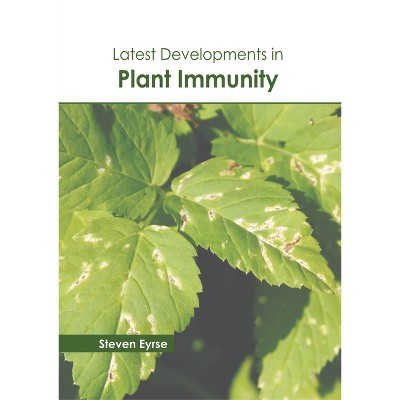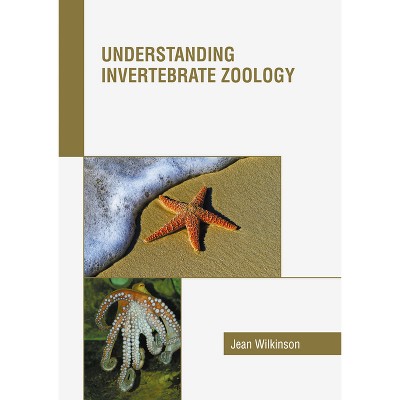Autophagy and Autoimmunity: From Cells to Immunity - by Heather Fraker (Hardcover)

$160.00 when purchased online
Target Online store #3991
About this item
Highlights
- Autophagy is a fundamental cellular process that involves the degradation and recycling of cellular components like damaged organelles and proteins.
- Author(s): Heather Fraker
- 221 Pages
- Science, Life Sciences
Description
About the Book
Autophagy is a fundamental cellular process that involves the degradation and recycling of cellular components like damaged organelles and proteins. This process is essential to maintain cellular homeostasis and plays both protective and pathogenic roles. Autophagy contributes to the elimination of self-antigens and helps in regulating immune responses. It clears intracellular pathogens and antigens, promoting immune tolerance and preventing the activation of autoreactive immune cells. A dysregulation of this process can lead to the accumulation of self-antigens and aberrant immune responses, triggering autoimmunity. Dysfunctional autophagy has been implicated in the pathogenesis of autoimmune diseases such as lupus, rheumatoid arthritis, and multiple sclerosis. Understanding the intricate relationship between autophagy and autoimmunity is crucial for developing therapeutic strategies. Modulating autophagic pathways presents a potential avenue for treating autoimmune diseases, either by enhancing autophagy to promote tolerance or by inhibiting autophagy to suppress aberrant immune responses. Further research into the role of autophagy in autoimmunity holds promise for uncovering novel therapeutic targets and improving patient outcomes. The book aims to shed light on some of the unexplored aspects of autophagy and autoimmunity and the recent researches in this field. Such selected concepts that redefine autoimmunity have been presented in it. Through this book, we attempt to further enlighten the readers about the new concepts in this field.Book Synopsis
Autophagy is a fundamental cellular process that involves the degradation and recycling of cellular components like damaged organelles and proteins. This process is essential to maintain cellular homeostasis and plays both protective and pathogenic roles. Autophagy contributes to the elimination of self-antigens and helps in regulating immune responses. It clears intracellular pathogens and antigens, promoting immune tolerance and preventing the activation of autoreactive immune cells. A dysregulation of this process can lead to the accumulation of self-antigens and aberrant immune responses, triggering autoimmunity. Dysfunctional autophagy has been implicated in the pathogenesis of autoimmune diseases such as lupus, rheumatoid arthritis, and multiple sclerosis. Understanding the intricate relationship between autophagy and autoimmunity is crucial for developing therapeutic strategies. Modulating autophagic pathways presents a potential avenue for treating autoimmune diseases, either by enhancing autophagy to promote tolerance or by inhibiting autophagy to suppress aberrant immune responses. Further research into the role of autophagy in autoimmunity holds promise for uncovering novel therapeutic targets and improving patient outcomes. The book aims to shed light on some of the unexplored aspects of autophagy and autoimmunity and the recent researches in this field. Such selected concepts that redefine autoimmunity have been presented in it. Through this book, we attempt to further enlighten the readers about the new concepts in this field.Dimensions (Overall): 11.0 Inches (H) x 8.5 Inches (W)
Suggested Age: 22 Years and Up
Number of Pages: 221
Genre: Science
Sub-Genre: Life Sciences
Publisher: Callisto Reference
Theme: Cell Biology
Format: Hardcover
Author: Heather Fraker
Language: English
Street Date: August 25, 2025
TCIN: 1004857653
UPC: 9798893640328
Item Number (DPCI): 247-11-9554
Origin: Made in the USA or Imported
If the item details above aren’t accurate or complete, we want to know about it.
Shipping details
Estimated ship dimensions: 1 inches length x 8.5 inches width x 11 inches height
Estimated ship weight: 1 pounds
We regret that this item cannot be shipped to PO Boxes.
This item cannot be shipped to the following locations: American Samoa (see also separate entry under AS), Guam (see also separate entry under GU), Northern Mariana Islands, Puerto Rico (see also separate entry under PR), United States Minor Outlying Islands, Virgin Islands, U.S., APO/FPO
Return details
This item can be returned to any Target store or Target.com.
This item must be returned within 90 days of the date it was purchased in store, shipped, delivered by a Shipt shopper, or made ready for pickup.
See the return policy for complete information.











